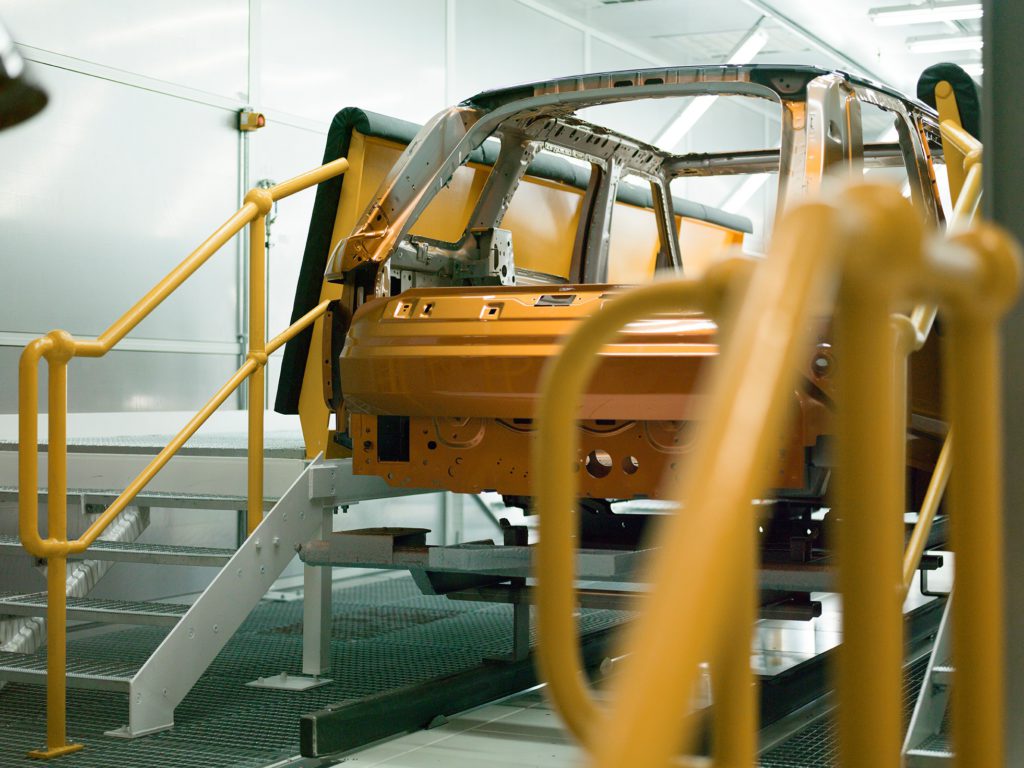JLR posts third-quarter loss as China and diesel bite
11 February 2019

11 February 2019
Jaguar Land Rover (JLR) has published its third-quarter results, for the three months to the end of December 2018, highlighting the difficulties the manufacturer is currently facing.
Retail sales for the quarter were 144,602 vehicles, compared with 154,447 a year ago, primarily as a result of continued challenging market conditions in China, offset partially by encouraging growth in North America and the UK. The company’s sales in Europe were up slightly, despite an 8% drop in the overall market.
The company reported revenues of £6.2 billion (€7.1 billion) and a pre-tax loss before exceptional items of £273 million (€311 million) (EBIT margin -2.6%) for the quarter. The financial results mainly reflect lower sales in China and higher depreciation and amortisation of investment expenses. The third quarter was also impacted by one-off factors including costs related to a planned reduction in inventories, warranty reserve adjustments and currency and commodity revaluation.
In its statement, the company highlighted that the automotive industry is facing significant market, technological, and regulatory headwinds. At the same time, investment in new models, electrification and other technologies remains high. Given the muted demand scenario and the associated impact on the financials, JLR has concluded that the carrying value of capitalised investments should be adjusted down, resulting in a non-cash £3.1 billion (€3.5 billion) pre-tax exceptional charge and an overall pre-tax loss of £3.4 billion (€3.9 billion) for the quarter.
China slump
Sales in China, a strong market for the company, fell 35% in the nine months to 31 December, strongly affecting the manufacturer’s results. Also, with most of the carmaker’s vehicles powered by diesel, the marked decline in demand for the fuel type market has also affected profits.
′Jaguar Land Rover reported strong third-quarter sales in the UK and North America, but our overall performance continued to be impacted by challenging market conditions in China,’ said JLR chief executive Ralf Speth. ′We continue to work closely with Chinese retailers to respond to current market conditions with a ′Pull’ based approach to vehicle sales.
′We are also announcing a non-cash exceptional charge to reduce the book value of our capitalised investments. This accounting adjustment is consistent with the other decisive actions that we must take as part of our ′Charge’ and ′Accelerate’ transformation programmes to create an efficient and resilient business, enabling Jaguar Land Rover to counter the multiple economic, geopolitical, technological and regulatory headwinds presently impacting the automotive industry.
′We are taking the right decisions to prepare the company for the new technologies and strong product offensive that will enable a long term future of sustainable, profitable growth.’
JLR realised £500 million (€570 million) of cash improvements through the ′Charge’ programme in the third quarter. As part of its plans to achieve £2.5 billion (€2.9 billion) of investment, working capital and profit improvements by March 2020, the company announced in January that it would reduce its global workforce by 4,500 people. This is expected to result in a one-time exceptional redundancy cost of around £200 million (€228 million).
The EBIT margin for the full financial year ending March 2019 is expected to be marginally negative, which will result in a pre-tax loss for the year before exceptional items.
The company has announced further investment in electrification with electric drive units being produced at its UK Engine Manufacturing Centre, and a new battery assembly centre to be established in the UK. JLR also opened its new manufacturing facility in Slovakia at the end of October, where production of the Land Rover Discovery has now started.